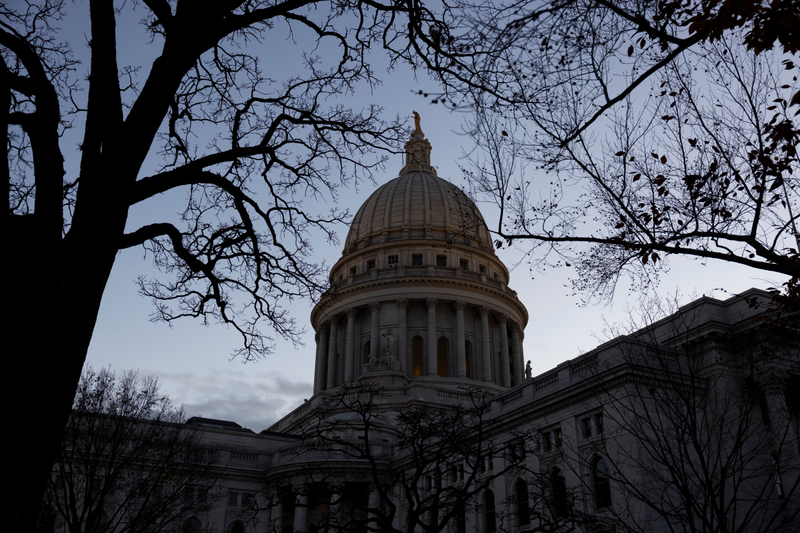Democratic Gov. Tony Evers is set to unveil his 2025-27 biennial state budget proposal on Tuesday. The nearly year-long process is now picking up speed, but the next two-year budget is still far from being finalized.
Over the next few months, the Legislature’s powerful Joint Finance Committee, controlled by Republicans, will make significant changes to Evers’ proposals before approving a final budget bill. During this time, the politically divided executive and legislative branches will wrestle over funding for public schools, child care, higher education, Medicaid expansion and much more.
Another budget surplus expected
Wisconsin ended its 2024 fiscal year with a more-than-expected $4.6 billion budget surplus and is on pace to end the current fiscal year with a $4.2 billion surplus. Republicans want to reduce the surplus by passing income tax cuts before the budget debate begins, while Democrats are urging more funding for things like K-12 education.
The Legislature must pass a budget signed by the governor every two years in order to use up state revenues for government operations. A budget period begins on July 1 of each odd-numbered year and concludes on June 30 of the next odd-numbered year. The last two-year budget totaled nearly $100 billion.
Here’s what this hectic process will look like:
The process involves three main entities that work to both create and pass the budget: the governor, the Legislature and state agencies.
State agencies like the Department of Public Instruction and the Department of Natural Resources calculate their financial needs for the upcoming cycle and submit formal funding requests, which were due to the State Budget Office back in September. The Department of Administration then analyzes and compiles the requests for the governor.
The governor then spends months crafting an executive budget proposal based on these requests, and community listening sessions are held across the state in December. On Tuesday he will give his budget address, which he is legally required to deliver to the new Legislature. Proposed funding for state agencies will be made available.
Soon after that — likely in March — Evers will reveal his capital budget proposal, which includes spending plans for long-term projects like new UW System buildings.
Then, the Joint Finance Committee will review and revise Evers’ budget. Under a divided government since 2019, the committee has scrapped the governor’s proposals and written its own. In 2023, GOP lawmakers began this process by stripping nearly 550 of his proposals.
Lawmakers on the Joint Finance Committee typically hold their own community listening sessions in April. The committee typically completes its revisions by the end of May.
Then, lawmakers in both houses of the Legislature — the Republican-controlled Senate and Assembly — have until the end of the fiscal year on June 30 to pass the budget before it heads to Evers’ desk for signing. Here, he can use his controversial partial veto power to remove specific appropriations from the budget bill, also allowing him to delete large sections of language and manipulate words or numbers.
In 2023, Evers made national headlines after he manipulated punctuation in the Legislature's budget to extend school funding for 402 years. A case challenging the partial veto is pending before the Wisconsin Supreme Court. In the meantime, Republican lawmakers have introduced a constitutional amendment that would strip away the governor’s partial veto power.
If the budget is not signed into law by July 1, the state will continue to operate under the previous budget passed in 2023 until the new one is signed.
This article first appeared on Wisconsin Watch and is republished here under a Creative Commons license.![]()


Add new comment